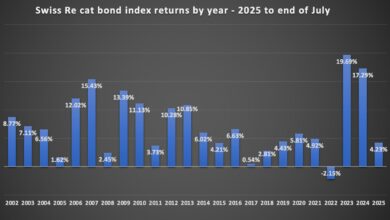Newborn Coverage Under Singapore Maternity Insurance

Welcoming a baby is an exciting milestone, but it also means more planning. In Singapore, where private healthcare can be costly, understanding how your newborn will be covered under health insurance is key to avoiding stress and unexpected medical bills.
What does maternity insurance cover? Does it include your newborn? How long does coverage last, and what happens next?
In this Pacific Prime CXA article, we break down what’s covered under maternity insurance, how long the coverage lasts, and what steps to take to protect your baby’s health from day one. With the right plan, you can focus on your growing family without worrying about gaps in coverage.

Understanding Maternity Insurance in Singapore

In Singapore, maternity insurance often includes routine prenatal care such as scans and lab tests, as well as medically necessary deliveries, including both natural and C-section births. Plans also typically cover complications and newborn medical needs.
These plans are especially popular among parents using private hospitals or those without extensive company-provided maternity benefits. Local insurers like AIA, Great Eastern, and Prudential offer maternity policies tailored to Singaporean residents.
What It Typically Covers
Maternity insurance plans usually offer a lump-sum payout if the mother or baby experiences covered medical complications. Coverage can begin as early as the 13th week of pregnancy and may continue for 30 to 90 days after birth.
Covered Medical Scenarios
Maternity insurance is designed to provide financial support for serious, often unpredictable medical issues affecting the mother or baby during pregnancy or delivery. Most plans include:
- Pregnancy complications (e.g., pre-eclampsia, ectopic pregnancy, gestational diabetes)
- Delivery-related issues (e.g., emergency C-sections)
- Newborn hospitalization and congenital birth defect treatments
- Hospitalization for the baby’s critical care needs
- Prenatal consultations, ultrasounds, and bloodwork
- Emergency or elective C-sections
- Delivery in hospitals, birthing centers, or at home
Hospital Coverage in Singapore
Plans usually apply to both public and private hospitals, but are especially useful at private institutions like:
These facilities offer top-tier care but can come with higher price tags.
Cost of Maternity Care in Singapore
Giving birth in a private hospital in Singapore can cost anywhere between SGD $6,000 and SGD $11,700 for a routine delivery, and up to SGD $20,000 or more for complicated C-sections. These high costs highlight the importance of securing maternity insurance early.
Enrollment Requirements
To qualify for maternity insurance in Singapore, expecting mothers must meet specific criteria and apply during the early stages of pregnancy. Mothers usually must:
- Be between 18–45 years old
- Apply before 13–20 weeks of pregnancy
- Undergo medical underwriting
- Be expecting only one child (twins may cost more or be excluded)
Understanding Newborn Coverage Under Maternity Insurance Plans in Singapore
Many plans offer newborn medical coverage from birth up to 30–90 days, including congenital disorders. Coverage caps typically range up to SGD $150,000, but underwriting may be required for continued protection after the initial period.
Limited Protection for Newborns
Most maternity insurance plans in Singapore include some coverage for newborns. However, it’s usually limited to specific cases like birth complications or congenital conditions diagnosed shortly after birth.
Common Inclusions
Coverage typically lasts for 30–90 days after delivery and may include:
- Inpatient hospital stays
- Intensive care (NICU) treatment
- Surgeries for covered congenital conditions
- Emergency treatments after delivery
Each policy has its limits and payout caps. Some plans offer coverage per condition, while others provide a single lump sum for any newborn complications during the covered period.
After the Coverage Period
Once the short-term newborn coverage ends, you’ll need to secure a standalone health insurance policy for your baby. Delaying this may result in a gap in protection or denial of claims if a health issue arises.
Limitations and Common Exclusions
While newborn coverage under maternity insurance provides essential protection, it’s far from comprehensive. Parents should be aware of coverage caps, timelines, and specific exclusions that may leave them unexpectedly out-of-pocket.
Coverage Duration Is Short
Newborn coverage often ends 30 to 90 days after birth. After that, the baby is no longer insured unless added to a family plan or enrolled in separate coverage. Missing this window may mean facing out-of-pocket expenses for ongoing care.
Exclusions to Watch Out For
Many maternity plans exclude certain conditions or scenarios. Common exclusions include:
- Preterm births before 32 weeks
- Genetic disorders (e.g., Down syndrome)
- Elective or non-emergency treatments
- Routine vaccinations or check-ups
These exclusions can vary by insurer, so it’s important to read the policy wording carefully or consult a broker. Don’t assume all congenital or neonatal conditions are automatically covered.
Waiting Periods and Enrollment Timing
Most maternity insurance plans in Singapore enforce a waiting period ranging from 10 to 24 months, with some extending up to 36 months. This means coverage only applies if you conceive after the waiting period, making early planning essential.

When and How to Add Your Newborn to a Health Insurance Plan
Once your baby is born, maternity coverage only lasts a short while. To ensure continuous protection, you’ll need to transition your newborn onto a long-term health insurance plan as early as possible—ideally within the first month.
Why Early Enrollment Matters
Delays in adding your baby to a health plan may lead to claim rejections or denied coverage for pre-existing conditions. Early enrollment ensures uninterrupted access to care and avoids medical underwriting complications.
Steps to Add Your Baby
To enroll your newborn, most insurers will ask for:
- A copy of the birth certificate
- The mother’s policy number
- Completed enrollment forms
- Any required medical documents (if needed)
Processing times vary, so it’s best to submit documents within 30 days of birth. Some insurers may allow retroactive start dates, but only if you act within the grace period.
Choosing the Right Coverage
When it’s time to secure ongoing coverage, parents can choose from several insurance options for their newborn. You can either:
- Add your baby to a family plan
- Buy a standalone child plan
- Include the baby under corporate group insurance (if offered)
Each option has different coverage limits and premium structures. A broker can help you compare plans that match your family’s needs.
Standalone Newborn Health Insurance Plans
Once your baby’s maternity-linked coverage ends, standalone health insurance becomes essential. These policies offer longer-term protection and can be customized to meet your child’s specific healthcare needs as they grow.
What These Plans Typically Cover
Standalone infant insurance plans are designed to cover a wide range of medical needs that go beyond what’s included in maternity coverage.
- Outpatient visits and vaccinations
- Hospital stays and surgeries
- Emergency care and specialist referrals
- Coverage for chronic conditions if declared early
Unlike maternity add-ons, these plans are meant for ongoing care. Premiums vary depending on coverage limits, insurer, and whether the baby has any existing health conditions at the time of enrollment.
Benefits of Early Enrollment
Enrolling your newborn in a standalone plan early, preferably within the first 30 days, can help secure broader protection and fewer coverage limitations.
- Avoid medical underwriting hurdles
- Lock in lifetime coverage without exclusions
- Get access to a broader range of benefits
Delaying enrollment may result in higher premiums or declined coverage if your baby develops health issues before the plan is in place.
Public vs Private Options
Singapore offers government schemes like Medishield, Medisave, and Medifund, but they may not cover all costs. Private plans offer more comprehensive protection and faster access to care, especially in private hospitals or for specialist treatment.
Cost Considerations and Financial Planning
Maternity and newborn care in Singapore can be costly, especially in private hospitals. While maternity insurance won’t cover every expense, it can significantly reduce your financial burden in the event of medical complications or extended hospital stays.
Maternity Insurance Cost in Singapore
Premiums for maternity insurance in Singapore typically range from SGD $400 to SGD $1,500, depending on the provider, level of coverage, and the mother’s age. More comprehensive plans or those covering twins or higher-risk pregnancies may cost more.
What Affects the Price
The cost of maternity insurance depends on factors such as the mother’s age, number of fetuses, and desired coverage level. Plans covering twins or offering high payouts usually come with higher premiums. Add-ons like newborn protection can also raise the price.
Buying a plan early in the pregnancy usually means lower premiums and broader coverage. Insurers may impose restrictions or raise costs if you apply later or have existing medical risks at the time of enrollment.
Out-of-Pocket Expenses to Expect
Even with maternity insurance, not all pregnancy-related expenses are covered. Parents should expect to pay for routine check-ups, scans, and diagnostic tests, especially if they opt for private hospitals or extra services not deemed medically necessary.
Other common out-of-pocket costs include delivery fees, postnatal consultations, and lactation support. While MediSave can help reduce some of these expenses, it has withdrawal caps that may not fully cover private care.
Choosing the Right Insurance Provider
Selecting the right insurance provider is key to ensuring a smooth maternity and newborn care journey, especially for expat families in Singapore. International maternity plans offer broad benefits, higher coverage limits, and flexibility that local plans may lack.
What International Plans Typically Cover
Most international maternity insurance plans include:
- Prenatal checkups and scans
- Delivery (normal and emergency C-section)
- Hospital stays in private facilities
- Medical costs for complications of pregnancy or childbirth
- Congenital conditions and NICU care for newborns
- Optional add-ons for wellness or postnatal care
These plans often come with generous annual coverage limits and access to a global network of hospitals, including Singapore’s top private facilities, like:
Maternity Waiting Periods
A defining feature of international maternity plans is the waiting period, typically 10 to 24 months. To be eligible for maternity and newborn benefits, you’ll need to secure a plan well in advance of becoming pregnant. Applying early also helps you avoid underwriting restrictions.
Newborn Coverage Options
Many insurers offer automatic coverage for newborns for the first 30 days or longer. After that, the child must be enrolled in a policy—some plans allow guaranteed acceptance if the baby is added within the grace period. Others may require medical underwriting, especially for congenital conditions.
Advantages for Expats in Singapore
International maternity insurance offers expat families living in Singapore key advantages over local plans. These policies allow continued coverage even if you relocate during or after pregnancy, providing peace of mind in a mobile lifestyle.
You’ll benefit from access to global hospital networks, multilingual customer support, and seamless digital claims tools. Many plans also let you adjust deductibles and add optional benefits, making it easier to tailor coverage to your medical and financial needs.
How Working with a Broker Simplifies Your Maternal Journey in Singapore
Working with a broker like Pacific Prime CXA makes navigating maternity insurance much easier. They partner with leading international insurers to find plans that suit your timeline, budget, and family needs, offering expert guidance throughout the process.
Brokers like Pacific Prime CXA can compare international and local maternity plans, helping you understand waiting periods, coverage limits, and whether your plan includes comprehensive newborn benefits, like congenital condition coverage or early vaccinations.
Conclusion
Understanding newborn coverage under maternity insurance is essential for families preparing to welcome a child in Singapore. From pregnancy complications to congenital conditions, having the right plan ensures peace of mind and financial protection during a critical time.
International maternity plans offer expats flexibility, global hospital access, and comprehensive support, making them a reliable option beyond just local solutions. Planning early and working with an experienced broker can make all the difference.
With 25 years of experience as a trusted broker, Pacific Prime CXA can help you compare options, explain fine print, and guide you through enrollment. Whether you’re expecting or simply planning, the right coverage will help you focus on what matters most—your growing family.
Contact us now to get started, or get a free quote from our online quote tool!

Frequently Asked Questions
Is maternity insurance worth it in Singapore?
Maternity expenses in Singapore, especially at private hospitals, can surpass SGD $10,000, making MediSave support insufficient for many families. Although MediSave helps cover some pregnancy-related costs, its usage is capped, so exploring maternity insurance is often a wise option.
How long can a newborn stay in Singapore?
Once your baby is born, you must register their birth with the ICA within 14 days. You’ll receive a birth certificate along with an advisory note. This note confirms that your newborn has been granted a Special Pass to remain in Singapore for 42 days from the date of birth.
Is maternity insurance worth it in Singapore?
Maternity expenses in Singapore can surpass SGD $10,000, particularly for births in private hospitals. While MediSave can help cover some pregnancy-related costs, usage limits apply. To manage potential shortfalls, many families consider purchasing maternity insurance for added financial protection.



